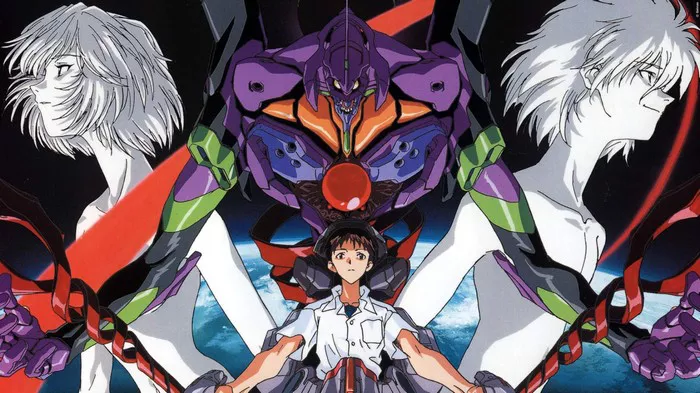Neon Genesis Evangelion, a seminal anime series created by Hideaki Anno, has captivated audiences worldwide since its debut in 1995. Despite its status as a cultural phenomenon, one aspect of the series that often draws attention is its pervasive sense of melancholy and despair. Viewers are left pondering why a show about giant robots battling cosmic entities could be so deeply depressing. In this article, we delve into the intricacies of Neon Genesis Evangelion to understand why it elicits such strong emotions and explores themes of existential dread, isolation, and the complexity of human relationships.
The Depressive Elements of Neon Genesis Evangelion
To comprehend why Neon Genesis Evangelion is so depressing, it’s essential to dissect the various narrative elements, character dynamics, and thematic undertones that contribute to its somber atmosphere.
1. Complex Characters:
One of the primary reasons for the series’ melancholic tone is its deeply flawed and psychologically complex characters. Protagonist Shinji Ikari is a prime example, grappling with self-doubt, loneliness, and a profound sense of inadequacy. As viewers witness Shinji’s struggles to find meaning and connection in a world plagued by conflict and uncertainty, they are confronted with the harsh realities of the human condition.
2. Existential Themes:
Neon Genesis Evangelion delves into existential questions about the nature of existence, the meaning of life, and the search for identity. The series explores themes of alienation, purposelessness, and the struggle to find one’s place in a chaotic and indifferent universe. As characters confront their inner demons and grapple with the existential weight of their existence, viewers are confronted with uncomfortable truths about the human condition.
3. Psychological Warfare:
The series employs psychological warfare as a narrative tool, subjecting characters to traumatic experiences, emotional manipulation, and existential crises. From the mind-bending horrors of the Evangelion pilots’ battles with the enigmatic Angels to the psychological torment inflicted upon them by the secretive organization NERV, the series plunges viewers into a dark and disorienting world where reality itself seems to unravel.
The Influence of Creator’s Vision and Industry Pressures
Behind the scenes of Neon Genesis Evangelion, there were various factors that contributed to its depressive tone, including the creator’s personal struggles, production challenges, and industry pressures.
1. Creator’s Vision:
Hideaki Anno, the mastermind behind Neon Genesis Evangelion, infused the series with his own experiences of depression, anxiety, and existential angst. Drawing inspiration from his struggles with mental health and feelings of isolation, Anno crafted a narrative that reflected the complexity and darkness of the human psyche. As a result, the series became a deeply personal exploration of the creator’s inner turmoil, resonating with audiences who could relate to its themes of despair and alienation.
2. Production Challenges:
The production of Neon Genesis Evangelion was fraught with challenges, including budget constraints, time pressures, and creative disagreements. As the series progressed, Anno and his team faced mounting pressure to meet deadlines and satisfy the demands of sponsors and stakeholders. These production pressures may have influenced the tone and direction of the series, leading to the incorporation of darker and more introspective themes.
3. Industry Pressures:
The anime industry itself is known for its grueling production schedules, intense competition, and high stakes. As Neon Genesis Evangelion gained popularity and critical acclaim, it faced increasing pressure to deliver groundbreaking content that would satisfy both fans and investors. These industry pressures may have contributed to the series’ depressive tone, as creators felt compelled to push boundaries and explore taboo subjects in order to stand out in a crowded market.
Audience Reception: Examining the Emotional Impact on Viewers
Neon Genesis Evangelion’s depressive nature has had a profound impact on its audience, eliciting a wide range of emotional responses and sparking intense discussions about its themes and messages.
1. Cathartic Release:
For many viewers, watching Neon Genesis Evangelion is a cathartic experience, providing a sense of validation for their own struggles with mental health and existential angst. The series’ unflinching portrayal of depression, loneliness, and trauma resonates deeply with audiences who find solace in seeing their own experiences reflected onscreen.
2. Intellectual Engagement:
Beyond its emotional impact, Neon Genesis Evangelion also stimulates intellectual engagement and critical analysis among viewers. The series’ dense symbolism, ambiguous narrative, and philosophical themes invite interpretation and debate, prompting audiences to explore the deeper meaning behind its imagery and storyline.
3. Community Support:
The depressive nature of Neon Genesis Evangelion has fostered a strong sense of community among fans, who come together to discuss and dissect the series’ themes, characters, and plot twists. Online forums, fan conventions, and social media platforms serve as gathering spaces for enthusiasts to connect with like-minded individuals and share their thoughts and feelings about the series.
Conclusion
In conclusion, the depressive nature of Neon Genesis Evangelion can be attributed to a complex interplay of narrative elements, production realities, and audience reception. Through its exploration of existential themes, psychological warfare, and complex characters, the series offers a profound meditation on the human condition and the search for meaning in a chaotic and indifferent universe.
While Neon Genesis Evangelion may elicit feelings of sadness, despair, and existential dread, it also serves as a powerful reminder of the resilience of the human spirit and the importance of connection, empathy, and self-discovery. As viewers navigate the depths of its depressive landscape, they are invited to confront their own fears and uncertainties, ultimately emerging with a greater appreciation for the complexity and beauty of life itself.
With this exploration of Neon Genesis Evangelion’s depressive nature, we’ve uncovered the complex interplay of narrative elements, production realities, and audience reception that contribute to its somber atmosphere. As viewers navigate the depths of its depressive landscape, they are invited to confront their own fears and uncertainties, ultimately emerging with a greater appreciation for the complexity and beauty of life itself.


